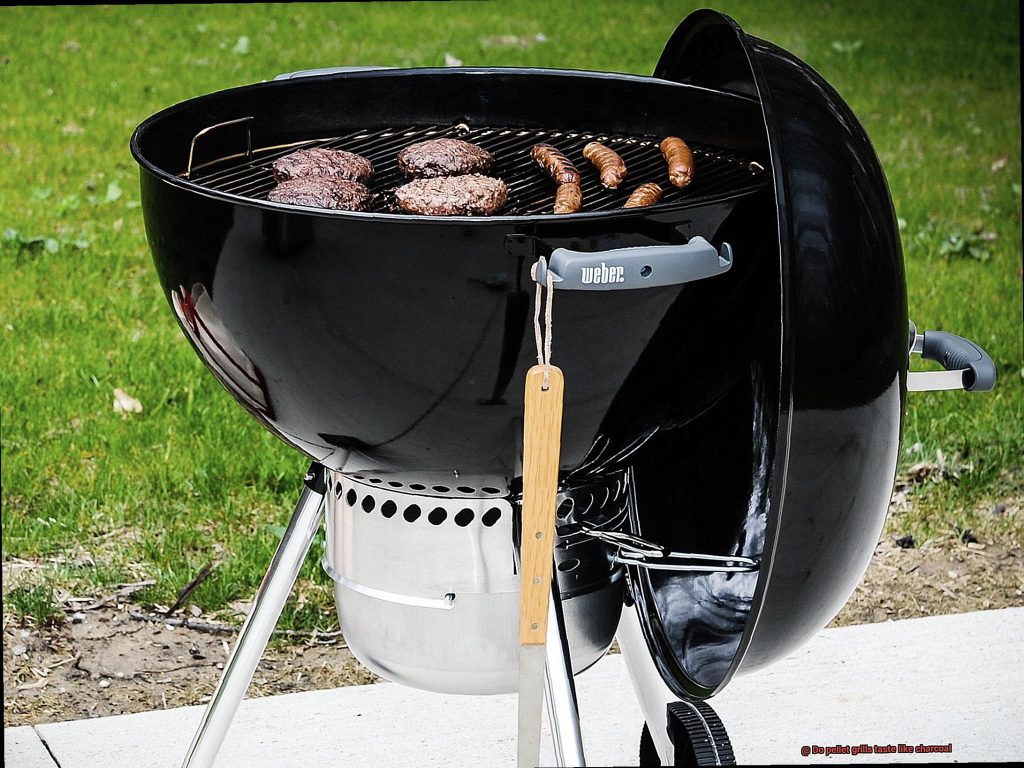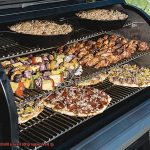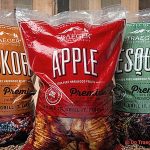Close your eyes and imagine the mouth-watering aroma of juicy meat searing over hot coals, infusing the air with that unmistakable smoky flavor that only true barbecue connoisseurs can appreciate. For years, charcoal has been the fuel of choice for grilling enthusiasts looking to up their culinary game and tantalize taste buds. But with the rise of pellet grills, many are left wondering – do they taste like charcoal?
Pellet grills, also known as smokers, use compressed hardwood pellets as their fuel source. These pellets are fed into a hopper that automatically regulates the temperature of the grill, allowing for precise control over cooking temperatures and smoke intensity. But can they produce that iconic smoky flavor we all know and love from traditional charcoal grills?
In this guide, we’ll explore the differences between pellet and charcoal grills and dive deep into the unique flavor profiles associated with each. From the subtle nuances of charcoal flavor to the distinct aromas imparted by pellet grills, we’ve got you covered with a comprehensive breakdown to help you decide which grill is right for your taste buds.
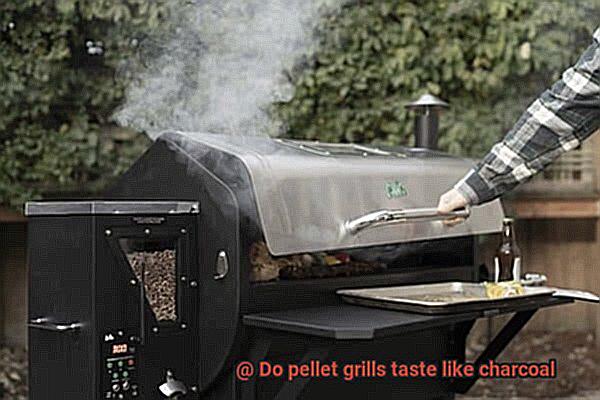
Whether you’re a die-hard traditionalist or open to exploring new grilling methods, keep reading to find out if pellet grills truly deliver that classic charcoal taste.
Contents
What are Pellet Grills?
Are you tired of the same old traditional grilling methods? Do you want to elevate your outdoor cooking game? Look no further than pellet grills.
What are pellet grills? Well, they are a type of outdoor cooking equipment that use wood pellets as fuel to cook food. Pellet grills offer a unique flavor profile and ease of use that make them a popular alternative to traditional charcoal and gas grills.
Pellet grills consist of a hopper that stores the wood pellets, a motor and auger system that feeds the pellets into the firepot, and a digital controller that regulates the temperature and cooking time. These wood pellets are made from compressed sawdust and come in various flavors such as hickory, apple, mesquite, and cherry.
One of the biggest advantages of pellet grills is their ability to produce consistent heat and smoke. The digital controller allows for precise temperature control, ensuring that the food is cooked evenly and thoroughly. Plus, the wood pellets offer a distinct smoky flavor that enhances the taste of the food.
But here’s the best part: pellet grills can produce an even better smoky flavor than charcoal grills. While some people argue that pellet grills don’t produce the same flavor as traditional charcoal grills, this isn’t the case. Pellets are made from compressed wood, which produces a natural smoky flavor when burned. And different types of wood produce different flavors, so you can choose pellets that perfectly complement the type of food you’re grilling.
In addition to their unique flavor profile, pellet grills are also incredibly convenient. The digital controller allows for easy temperature control, and many models come with additional features such as WiFi connectivity for remote monitoring. Plus, cleanup is a breeze since there’s no need to deal with messy charcoal or propane tanks.
The Difference between Pellet and Charcoal Grills
Both options have their unique benefits and drawbacks, so let’s explore the differences between them.
Charcoal grills are fueled by either charcoal briquettes or lump charcoal. These materials burn at high temperatures, giving your food that iconic smoky flavor that many people adore. However, they require careful attention and maintenance throughout the cooking process to ensure that the coals remain at the right temperature.
In contrast, pellet grills use compressed wood pellets made from sawdust or other wood byproducts. These pellets burn cleanly and efficiently and are fed into the grill’s combustion chamber through a hopper. An electric element or gas-powered starter ignites the pellets, making it much easier to maintain a consistent temperature throughout the cooking process. Many pellet grills even come with digital controls that allow you to set the desired temperature and monitor the progress remotely.
While both types of grills produce a smoky flavor similar to traditional barbecue, some purists argue that the flavor produced by burning actual wood or charcoal is more authentic and intense. But if convenience is what you’re after, then a pellet grill would be an excellent option for your outdoor cooking needs.
Here are some more differences:
- Pellet grills are easier to use than charcoal grills because they require less attention and maintenance.
- Charcoal grills give you better control over your cooking temperature because you can adjust the position of your coals.
- Pellet grills offer more versatility as they can also be used for smoking, baking, and roasting in addition to grilling.
- Charcoal grills are cheaper than pellet grills as they do not require any special equipment or technology.
Ultimately, whether you choose a pellet or charcoal grill comes down to personal preference and cooking style. If you love the classic smoky flavor of traditional barbecue and don’t mind putting in the extra effort to maintain temperature, then a charcoal grill may be your best bet. However, if you’re looking for convenience and versatility without sacrificing flavor, then a pellet grill could be the perfect choice for you.
The Flavor Produced by Pellet Grills
As a self-proclaimed grill master, I know firsthand that the flavor produced by pellet grills is a hot topic in the BBQ community. With so many different types of pellets to choose from, the flavor profiles that can be achieved are endless. Let’s dive deeper into the world of pellet grills and explore the unique taste experiences they offer.
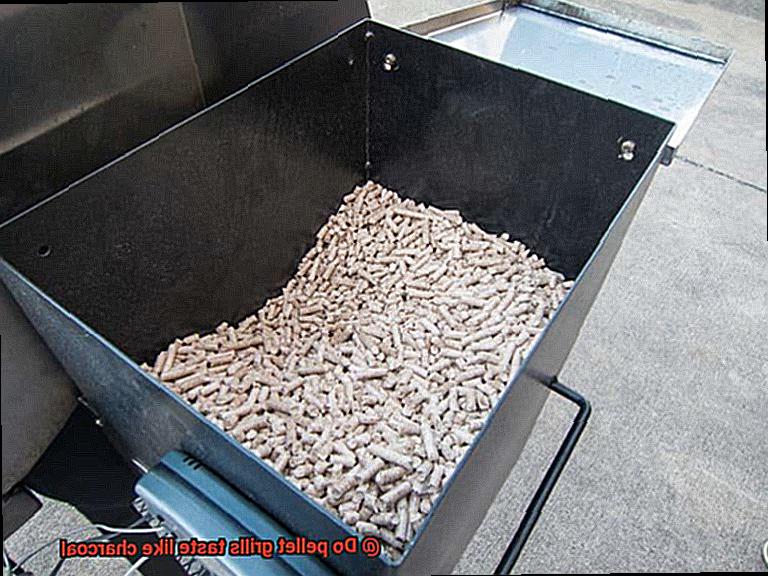
First things first, let’s talk about the basics. Pellet grills use compressed sawdust pellets to fuel their heat source, and the type of pellet you use can impact the flavor of your food. From hickory to mesquite, apple to cherry, each pellet offers a distinct flavor profile.
Some BBQ enthusiasts argue that pellet grills don’t produce the same smoky flavor as charcoal grills. However, others argue that consistency and control are key factors that make pellet grills just as delicious. In fact, many pellet grill enthusiasts claim that their grill produces a more consistent and controllable smoky flavor than charcoal grills.
One of the biggest benefits of using a pellet grill is the ability to use different types of wood pellets, allowing for unique and distinct flavors to be added to your food. Additionally, most pellet grills come equipped with a built-in smoke box, giving you even more control over the smoky flavor.
So what kind of flavor profiles can you achieve with a pellet grill? Here are some examples to get your taste buds excited:
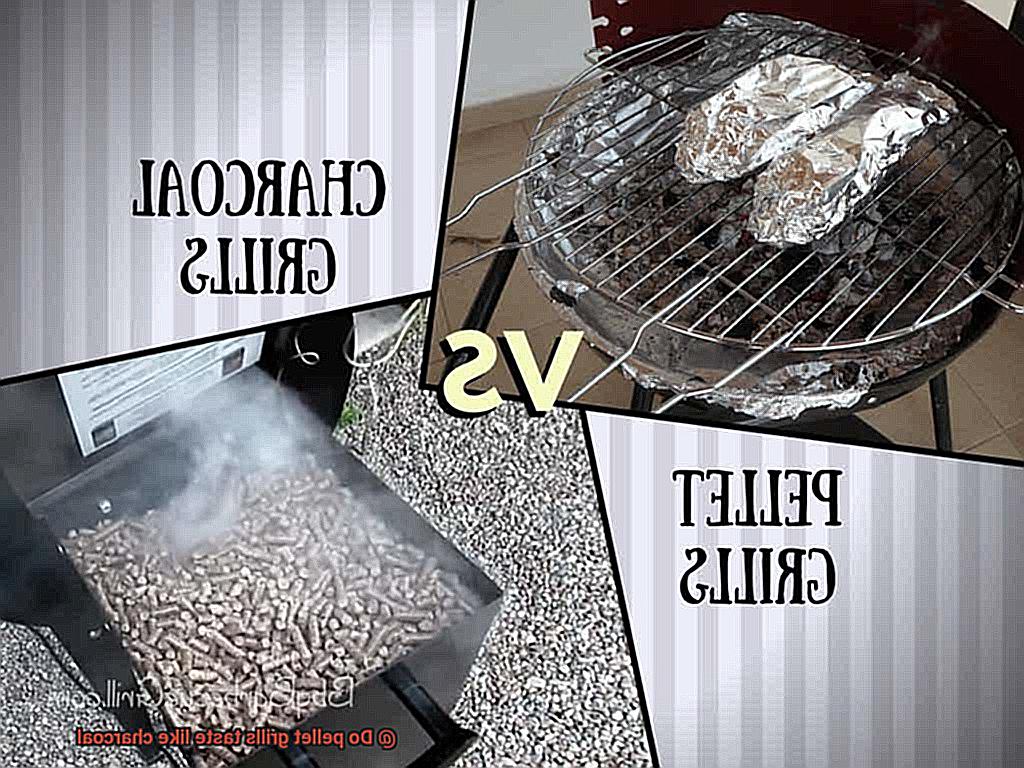
- Hickory: If you’re looking for a strong smoky flavor, hickory pellets are perfect for beef, pork, and poultry.
- Mesquite: Mesquite pellets offer an earthy and slightly sweet flavor that pairs well with beef and game meats.
- Apple: For a milder yet sweet flavor, try apple pellets with pork and poultry.
- Cherry: Cherry pellets produce a fruity and sweet flavor that pairs well with poultry and fish.
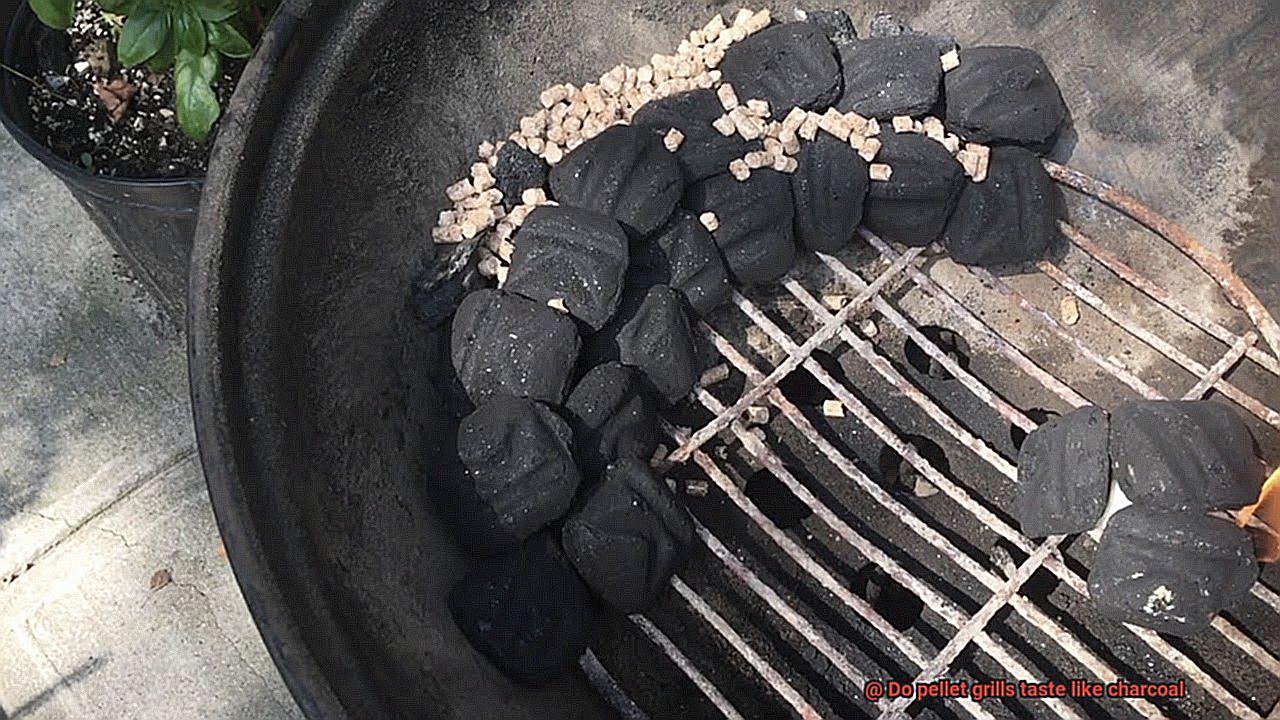
Factors that Affect the Flavor Produced by Pellet Grills
Worry not, as there are several factors that affect the flavor produced by pellet grills. Let’s dive in and explore these factors.
The type of pellets used can significantly impact the flavor of your grilled dishes. Different types of pellets, such as hickory, mesquite, or applewood, produce varying smoky flavors. It’s essential to choose the right type of pellet that complements the meat being grilled to achieve the desired flavor. For instance, if you’re grilling beef, hickory pellets are known to produce a robust and intense flavor.
Temperature is another crucial factor that plays a significant role in determining the flavor produced by pellet grills. The temperature at which you set your grill can affect the amount of smoke produced and influence the flavor. A higher temperature will produce a lighter smoke flavor, while a lower temperature will give a heavier smoke flavor. Therefore, it’s crucial to monitor your grill’s temperature to strike the perfect balance between heat and smoke.
Cooking time also affects the flavor produced by pellet grills. Longer cooking times allow more time for smoke to penetrate the meat and enhance its smoky flavor. On the other hand, shorter cooking times may not give enough time for smoke to infuse into the meat, resulting in less flavorful dishes.
Moreover, other factors such as humidity, wind, and altitude can also affect the flavor produced by pellet grills. Humidity can hamper smoke production, while wind can cause uneven heat distribution. Altitude can affect temperature control on a pellet grill.
Different Types of Wood Used in Pellet Grills
Let’s take a closer look at the different types of wood pellets used in pellet grills and how they enhance your meals.
Hickory Pellets: Strong and Smoky
Hickory pellets are a classic and widely used option for pellet grills. They have a strong, smoky flavor that pairs well with beef, pork, and poultry. However, it’s important to monitor the smoke level carefully as too much smoke can overpower the meat’s natural flavors.
Mesquite Pellets: Earthy and Bold
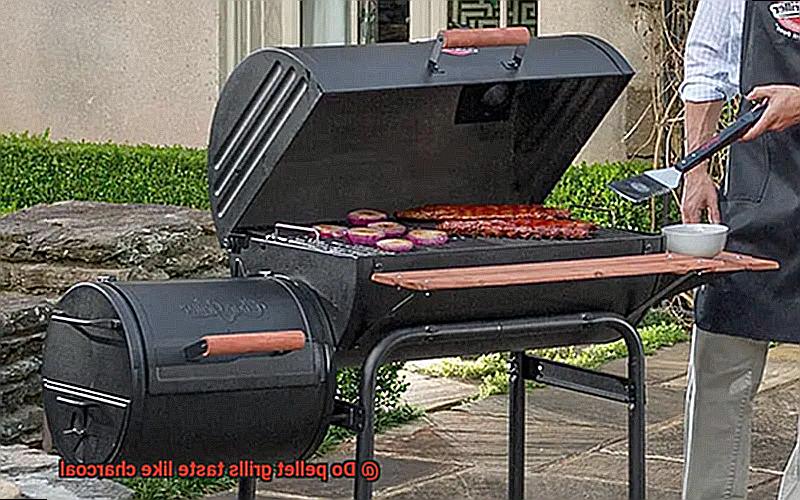
Mesquite pellets provide an earthy, bold flavor that is perfect for red meats like steak. Its strong taste can easily overpower other flavors, so it’s best to use them sparingly or for shorter cooking times.
Applewood Pellets: Sweet and Mild
For those who prefer a milder flavor, applewood pellets are an excellent choice. They offer a slightly sweet taste that pairs well with pork and chicken. Applewood pellets are also great for smoking fish or vegetables.
Cherry Wood Pellets: Fruity and Flavorful
Cherry wood pellets have a fruity taste that works well with all types of meat. They provide a subtle smoky flavor that enhances the food’s natural taste without overpowering it.
Oak Pellets: Versatile and Neutral
Oak pellets are a versatile option that has a neutral flavor and can be used for almost any type of meat. They provide a subtle smoky taste without overpowering the natural flavors of the food.
Pellet Blends: Mix It Up
Many pellet grill manufacturers offer blends of different types of wood pellets to create unique flavor profiles. For example, a blend of hickory and applewood pellets can provide a balance of sweet and smoky flavors that work well with pork.
How to Choose the Right Type of Wood for Your Grill
While pellet grills have become a popular choice for their convenience, many people wonder if they can produce the same smoky and flavorful taste as traditional charcoal grills. The answer is not exactly, but with the right type of wood, pellet grills can still produce a delicious and unique smoky flavor.
Choose the Right Flavor Profile
Different types of wood produce different flavors, so it’s important to consider what flavor profile you’re aiming for. If you’re cooking poultry or fish, fruit woods like apple or cherry can add a subtle sweetness to the meat. For beef or pork, hickory or mesquite pellets can add a more intense and smoky flavor. Keep in mind that some wood types may overpower the meat, so it’s essential to use them sparingly.
Look for High-Quality Pellets
The quality of the pellets you’re using is also important when selecting wood for your grill. Look for pellets made from 100% hardwood with no fillers or additives. Cheaper pellets may contain sawdust from softwood trees, which produces a bitter taste and an inconsistent burn. High-quality pellets will ensure an even burn and consistent flavor.
Experiment with Different Types of Wood
Different types of wood burn at different temperatures and rates, so it’s essential to choose the right type of wood for your specific grill. Some pellet grills have settings that allow you to adjust the temperature and smoke output, while others require experimentation to find the perfect balance. Experiment with different types of wood and temperatures until you find the perfect combination for your taste buds.
Keep in Mind that No Type of Wood Can Exactly Replicate Charcoal Flavor
Charcoal is made by burning wood at high temperatures in an oxygen-deprived environment, leading to a smoky and slightly bitter flavor. While some types of wood can come close to replicating this flavor profile, it’s important to remember that no type of wood will replicate the exact flavor of charcoal. Instead, embrace the unique advantages of pellet grills and experiment with the flavors they can offer.
Consider Mesquite for a Bold Flavor
Mesquite wood is a popular choice for those seeking a charcoal-like flavor. With a strong and distinct smoky flavor, mesquite can add a pleasant smokiness to meats when used sparingly. However, it’s important not to overuse mesquite as it can be overpowering.
Tips for Getting the Best Flavor from a Pellet Grill
If you want to take your grilling game to the next level, then mastering the art of getting the best flavor from a pellet grill is essential. Here are some tips and tricks that will help you achieve mouth-watering smoky flavors that will leave a lasting impression on your taste buds.
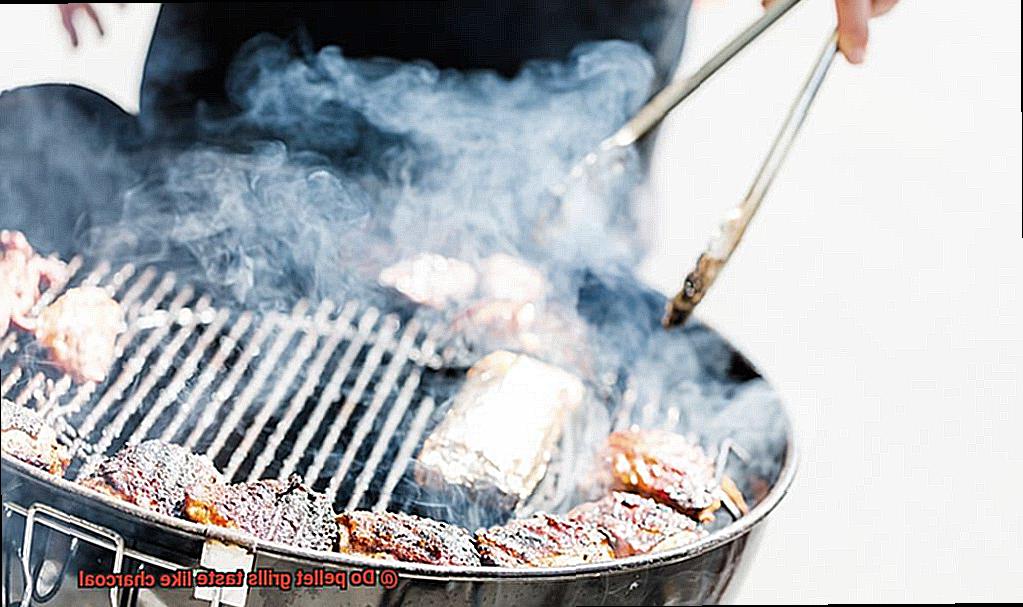
Tip #1: Choose the right pellets
The type of wood pellets you choose can make or break the flavor of your grilled food. Hickory or mesquite pellets offer a rich, smoky flavor, while fruitwood pellets like apple or cherry provide a sweeter taste. Experiment with different types of wood pellets to find the perfect flavor that suits your taste buds.
Tip #2: Use high-quality ingredients
Using fresh meats and vegetables is crucial for achieving delicious flavors. Opt for high-quality cuts of meat and avoid frozen or processed ones. Marinating your meat before grilling can also add an extra layer of flavor to your dishes.
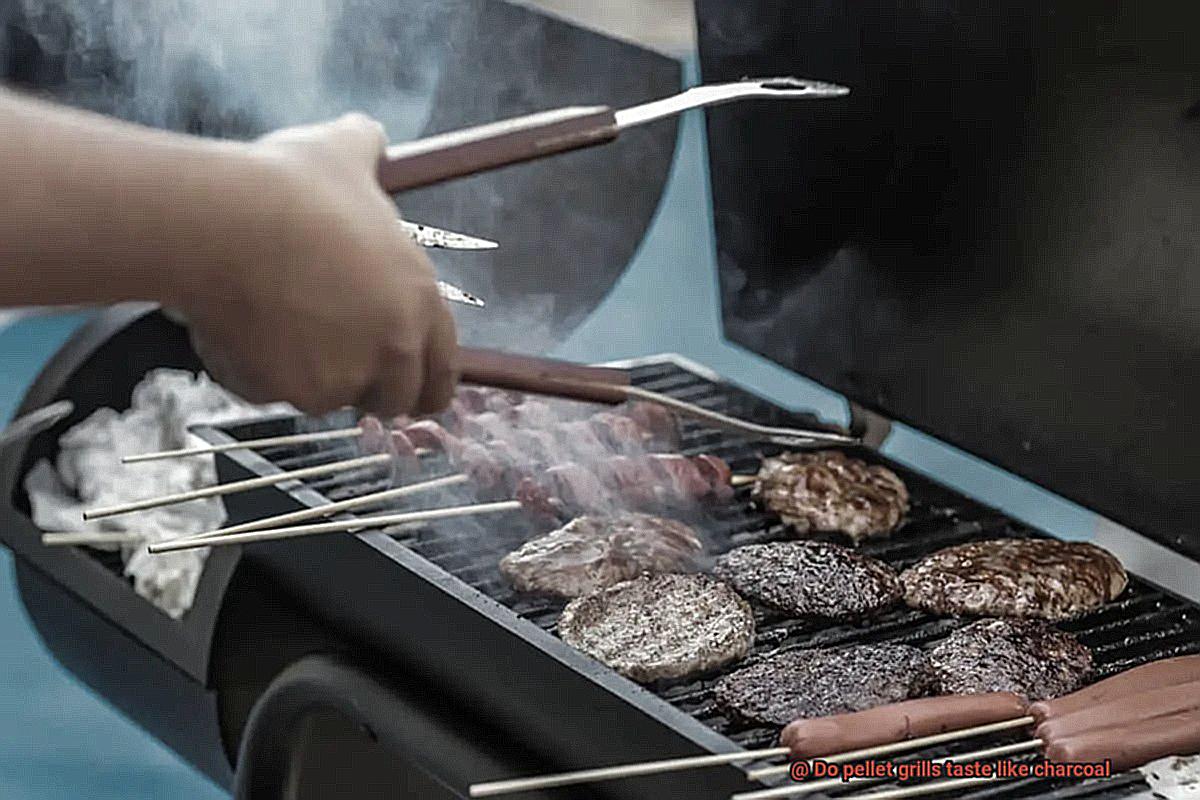
Tip #3: Preheat your pellet grill
Preheating your pellet grill is essential for getting the best flavor and ensuring even cooking. This step helps the grill reach the desired temperature and maintain it throughout the cooking process, resulting in perfectly cooked and flavorful food.
Tip #4: Maintain a consistent temperature
Maintaining a consistent temperature is key to enhancing the flavor of your food. Invest in a meat thermometer to ensure that your food is cooked to perfection without overcooking or undercooking it.
Tip #5: Use high-quality rubs and seasonings
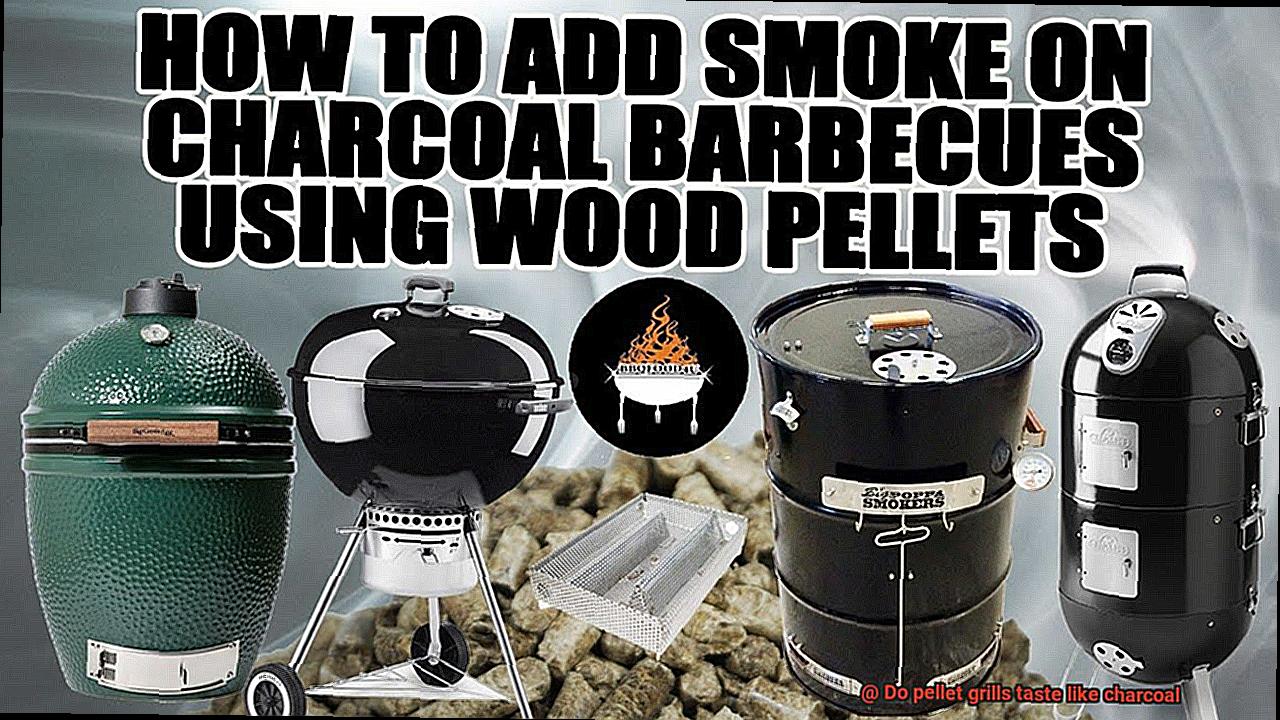
Using high-quality rubs and seasonings can elevate the natural smokiness of your pellet grill’s flavor. Whether you prefer savory or sweet flavors, there are plenty of options available to complement the unique taste of your grilled food.
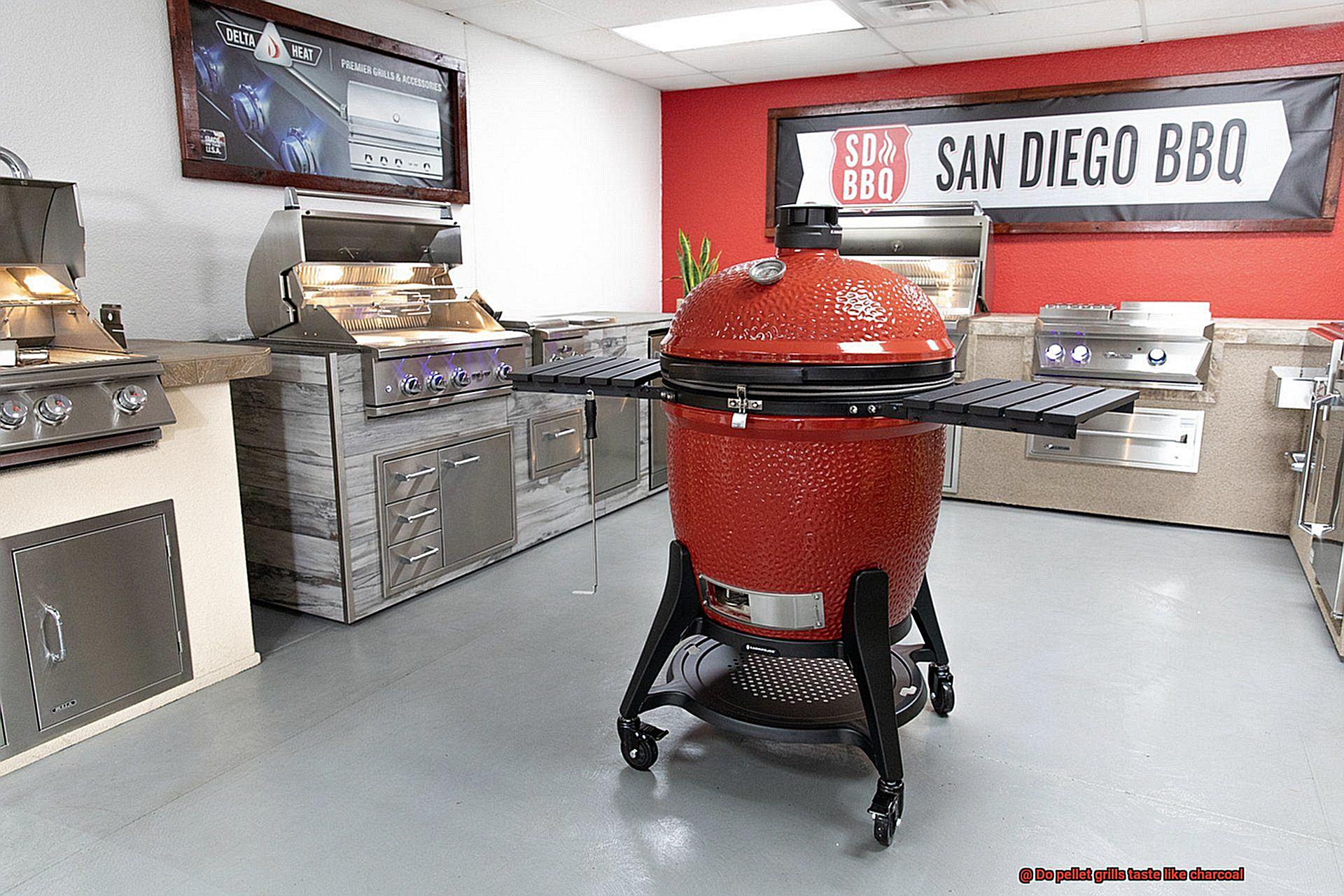
Tip #6: Practice patience
Mastering the art of pellet grilling takes time and patience. Unlike traditional charcoal grills, pellet grills require longer heating times, but this results in more flavorful and tender dishes. So, be patient, and let the grill work its magic.
Pros and Cons of Using a Pellet Grill
Pellet grills might just be the answer to your quest. These grills have gained immense popularity in recent years, thanks to their ease of use and flexibility. As an expert in the field, I can help you navigate the pros and cons of using a pellet grill so that you can make an informed decision.
Let’s start with the advantages. Pellet grills are incredibly convenient, requiring minimal effort to maintain temperature and start up. This makes them an ideal option for busy individuals or those who want to spend less time tending to their grill. Additionally, pellet grills are versatile and can be used for a variety of cooking methods such as smoking, roasting, and grilling. They also offer the ability to cook at various temperatures, making them perfect for cooking different types of meat. Moreover, pellet grills feature an automated system that maintains consistent heat throughout the cooking process, eliminating the need for constant monitoring.
However, there are some drawbacks to using a pellet grill. One of the main disadvantages is that it produces less charcoal flavor than traditional charcoal grills. While some pellet grills allow you to add wood chips for additional flavor, it may not be as strong as the flavor produced by charcoal. Another issue is that pellet grills require electricity to operate, which can be problematic if you want to use it in remote areas or during power outages. Lastly, pellet grills can be more expensive than traditional charcoal grills due to their advanced technology and features.
6zSZXDj5U-A” >
Conclusion
In conclusion, while pellet grills may not have the exact same flavor as charcoal grills, they do offer a unique and delicious taste that many people enjoy.
Pellet grills use wood pellets to infuse food with smoky flavors, which can vary depending on the type of wood used. Additionally, pellet grills offer convenience and ease of use that charcoal grills may not provide.

